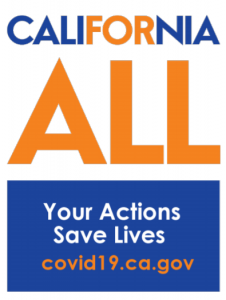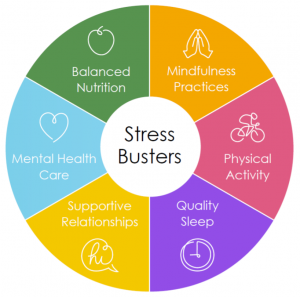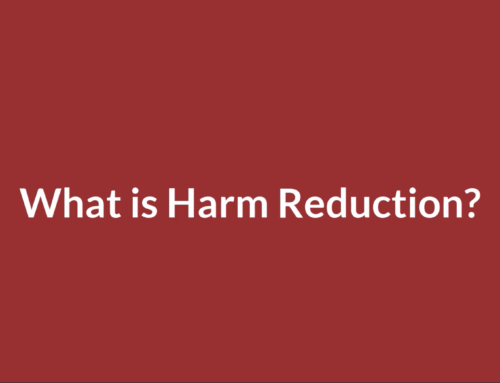You are not alone if coping with coronavirus stress and anxiety has taken over your headspace lately. What you may not know is how much of an impact coronavirus is having on your mental health. While it might seem counter-intuitive to add yet another task to your list in order to reduce your stress level, the surgeon General in California explains that “…emotional and spiritual connection are more important than ever for physical and mental health.”
 Is the Stress of Coronavirus Getting to You?
Is the Stress of Coronavirus Getting to You?
California Surgeon General Dr. Burke Harris sites medical research on stress can make pre-existing health conditions worse, and that’s just not for issues like heart disease and diabetes – stress also exacerbates mental health conditions. What may have been a molehill before coping with coronavirus stress might be now have become a mountain.
Many Americans are finding that some of their bad habits are getting worse – maybe a little bit, maybe a lot. We may be sleeping too much or not enough, drinking too much, eating too much and a host of other issues that may (or may not, depending) be warning signs that our mental health needs some attention.
Here are some common signs and symptoms of mental illness that you can watch out for:
• Feeling sad or depressed
• Feeling overly worried or fearful
• Feeling withdrawn
• Big changes in your eating habits
• Having extreme mood swings
• Feeling increasingly incapable of coping with daily stressors
• Issues with drug and/or alcohol use
• Changes in sleep (sleeping a lot less / more)
• Changes to your sex drive
• Disproportionate anger and hostility
• Suicidal thoughts
So, What Can I Do to Protect My Mental Health?
First of all, calm down, take a breath. Considering that coping with coronavirus stress has affected practically the entire world, you’re not alone. The fact that you’re here reading this article is a positive sign. If you’re experiencing any of the signs above to a meaningful extent, it might be time to contact someone and/or explore some strategies for managing stress.
According to the Resources for Emotional Support and Well-Being information newly put out by the State of California, some strategies for managing stress during coronavirus (COVID-19) are:
• Being mindful of your intake of information from news sources about the virus, and consider taking breaks from it.
• Maintaining social contact with supportive relationships like friends, family or others, by phone, text, or internet.
• Treating your body kindly: eating healthy foods, avoiding excessive consumption of alcohol, and exercising if you are able.
• Calling your health care provider if your anxiety interferes with your daily activities.
• Learning about additional strategies to manage your stress for health.
 Coronavirus Resources for Caregivers and Kids
Coronavirus Resources for Caregivers and Kids
One of the most stressed-out demographics during the coronavirus pandemic are parents. Kids are tough enough as it is, but stress levels are going through the roof as parents many parents are adapting to school closures and child care issues related to coronavirus.
To that end, the State of California has created the California Surgeon General’s Playbook: Stress Relief for Caregivers and Kids During COVID-19.
This “playbook” is a 9-page guide targeted at parents and caregivers loaded with tips, how-to’s and plenty of resources to help reduce stress and increase mental health self-care. The playbook is available online, but some highlights are:
• Navigating Stress Management with Kids
• Keeping an Eye Out for Stress in Kids
• Stress-Busting for Kids & Six Stress-Busting Strategies for Kids
• A Self-Care Template for Kids
This playbook is a great resource for any parent or caregiver that is finding it difficult or stressful to navigate their new childcare situation during coronavirus.
Mental Health Resources Available During the Coronavirus Pandemic
If you feel like you want to self-harm or harm others, help is a phone call away. You can call the National Suicide Prevention Hotline at 1-800-273-8255. The hotline provides confidential support for both individuals in crisis and for concerned loved ones. If you’re not ready to call yet, their website has a lot of helpful, supportive information and resources.
Specialized Help for Different Groups of People
Feeling overwhelmed during the coronavirus pandemic is a real and growing concern for the citizens of California, across the nation and throughout the world. Now more than ever, people who are at risk need support and access to resources. The State of California has gathered these resources in one place on their website and has also organized them by groups for ease of access.
Mental health resources and hotlines are provided for:
• Veterans
• Youth and Teens’ CA Youth Crisis Line and Teen Line
• Law Enforcement and First Responders
• Older Californians Friendship Line, Senior Information Line and substance abuse assistance
• Deaf and Hard of Hearing Individuals
• LGBTQ Youth, LGBT National Hotline, LGBTQ Victims of Crime Resource Center
• Individuals with substance abuse disorders
Additional resources are available for:
• Medi-Cal mental health services
• Partner Abuse, Victims of Crime Resource Center, CA Partnership to End Domestic Violence
• Child Abuse and Neglect
• Family Resource Center
• Adult Protective Services
Find Your Support While Coping with Coronavirus Stress
Whatever your stressors and wherever you fit in during the coronavirus pandemic, there is support for your mental well-being. If you live in California, consulting the new emotional health resources section of the Coronavirus (Covid-19) Response website will provide you with an easy to navigate list of resources and information. Knowledge, support and self-care can improve our mental health and allow us to uplift each other as well.


